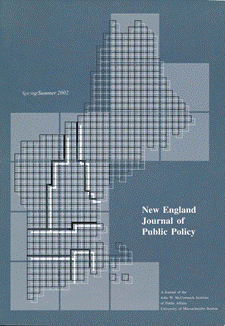Volume 17, Issue 2 (2002)
This issue of the journal can be summed up in one word: provocative. At least two articles break new ground. Anthony Robbins and Phyllis Freeman explore the ways in which environmentally oriented public health is uniquely suited to help organized medical care in providing health and in restraining expenditures. Janet Farrell Smith challenges policymakers to look at what will soon become a hot issue — the medical use of genetic information. The genetic testing of children, now becoming prevalent in the foster care and pre-adoptive stage in order to facilitate placement and satisfy prospective parents’ “need to know,” is already a controversial issue, and if the practice of genetic testing becomes widespread in one area of medical care, it is almost inevitable that it will be “exported” to other areas. One is compelled to ask: Where is the public debate? And what might the consequences be if genetic testing becomes a common practice? Technological breakthroughs in medicine are altering the framework we use to make policy decisions, yet we remain wedded to the old paradigms.
Front Matter
Editor's Note
Editor's Note
Padraig O'Malley
Articles
Environmental Public Health Awaits Rediscovery
Anthony Robbins and Phyllis Freeman
Domestic Violence at the Top of New England: Law Enforcement Incident Reports from Aroostook County, Maine
Carolyn Ball and Kenneth Nichols
Genetic Testing: A Cautionary Tale of Foster and Pre-Adoptive Children
Janet Farrell Smith
School District Performance Under the MCAS
Jie Chen and Thomas Ferguson
Back Matter

Editors
- Editor
- Padraig O'Malley
- Copy Editor
- Patricia Peterson